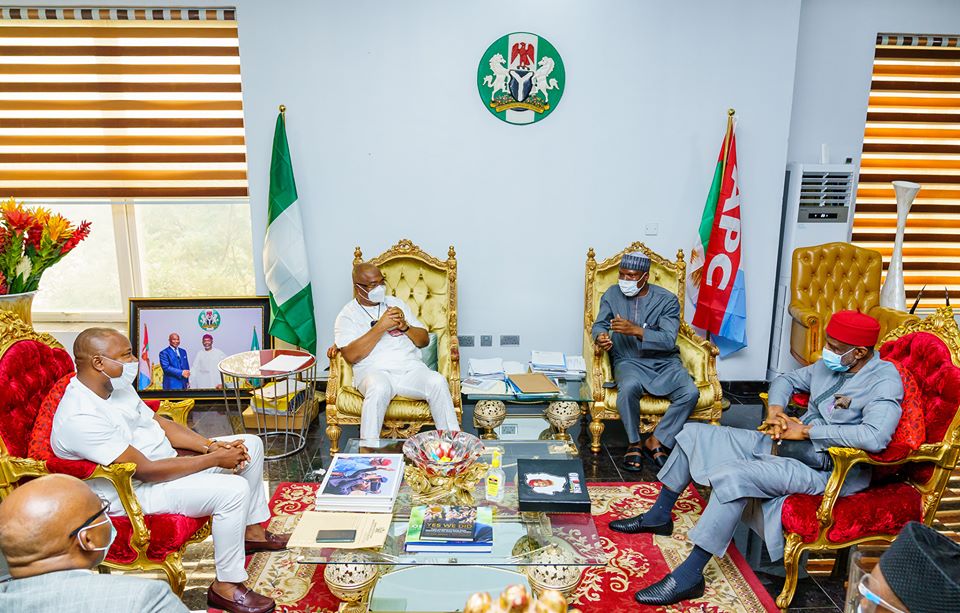
A major crisis may soon hit the Imo State-owned broadcasting corporation as the Imo Broadcasting Corporation, IBC, owe its workers between five and six months’ salaries.
The workers, many of who spoke with our reporter, complained over the non-payment of their salaries.
The workers said they might embark on an indefinite strike if their entitlements were not paid within a short time.
The situation made members of the Joint Action Committee of the three in-house workers unions in the corporation to demand the payment of their five to six months’ salaries from the Imo State Governor, Owelle Rochas Okorocha.
The workers also threatened to embark on industrial action if the government refused to consent to their demand.
Chairman of Joint Action Committee, Sam Eke, said the workers had been living in poverty as a result of the government’s refusal to fulfill its financial obligations to them.
Speaking after the JAC meeting with Nigeria Labour Congress, NLC, Eke said “We brought them (Labour) here to let them and government know about our situation here and our resolve to embark on strike. You can imagine that since January when they paid some of our workers 70 percent of their salaries, we have not received any other salary here.
“On top of that, we are forcefully subjected to work for 24 hours without any negotiation or authorization. You know what it is when a civil servant is putting additional hours on the official closing working hours. People sleep here and nobody cares about our predicament”.
Eke added that the workers discovered that the government was planning to further reduce the salaries of parastatatals to 50 percent and “we are saying no to it and we can’t take that because we are different. We are not the same with others because of the kind of services we render to the government. We generate money and 95 percent of our services is given to the government. They don’t even pay for the services and these are the time we would have used to generate money on our own if we are a bit independent. Again, the opposition is not allowed to use this medium. So they should pay us our salary”.
He insisted that the workers would embark on indefinite strikeWe brought them here to inform them that “if they don’t pay us from now till Friday, and there won’t be skeletal service. We are talking about people with family, whose children are in various schools and in need of many things”.
The JAC chairman however expressed happiness that the workers were happy that the organized labour had told the management of IBC to make a memo to Hon. Ikenna Eme government committee on payment of salaries in that regard.
The State chairman of the NLC, Comrade Austin Chilakpu while reacting to the outcome of the meeting said they came to the corporation to intercede on the proposed strike by the workers of the Imo Broadcasting Corporation (IBC) and pleaded with them not to go on strike “because if they do, it will affect the entire state”.
He hailed the workers for comporting themselves well by not first embarking on industrial action, saying “They are in order in their demands because they are rendering essential services to the state and government. IBC is now working 24 hours and this requires additional responsibilities. It’s not good that after doing this job with additional responsibilities you’re still owing them salaries. We are going to meet government to listen to them and stop them from going on industrial action
“Their main issue is that their subvention which has been reduced to 50 percent is not enough to make the place function optimally. The management is facing a daunting task of running the place without public power supply but on generating set with diesel. You know how expensive diesel is these days. If they were running generator 12 hours before, now it’s 24 hours. The money they spend has more than doubled. The issue of their salary is a one-point agenda we have today and between now and the nearest future they will be paid their salaries”.
He promised to follow the demands of the workers up and present their problem to the government.



